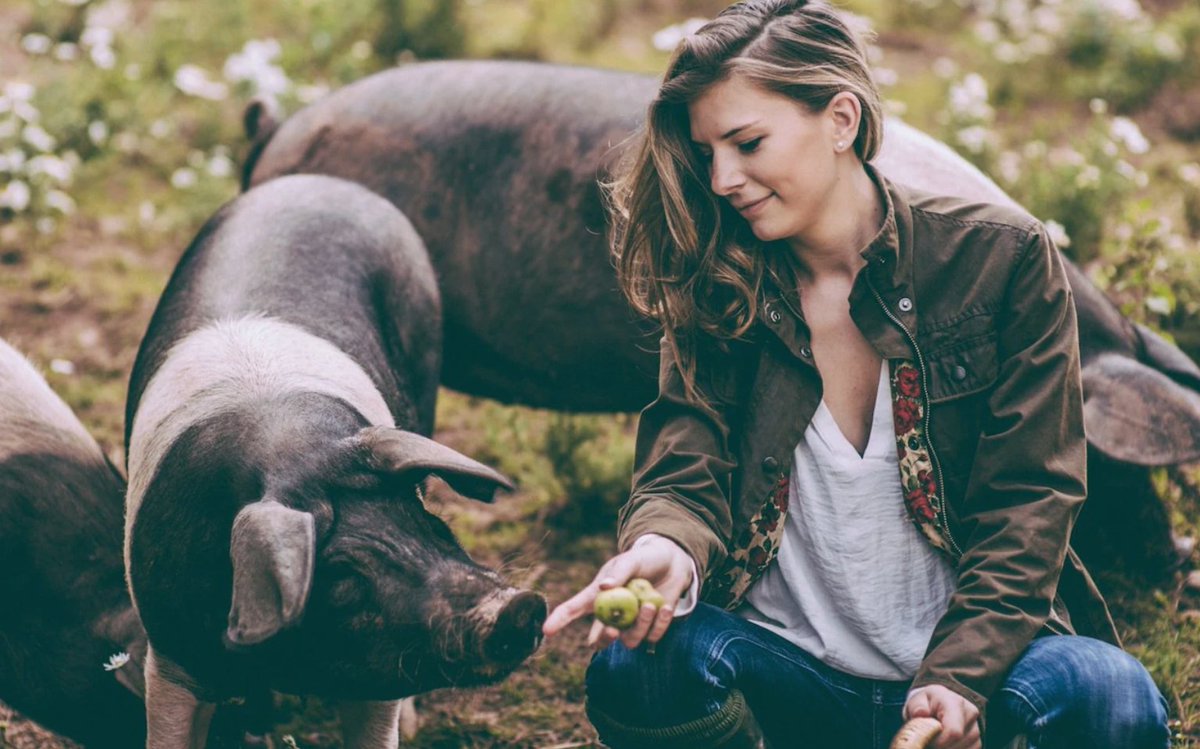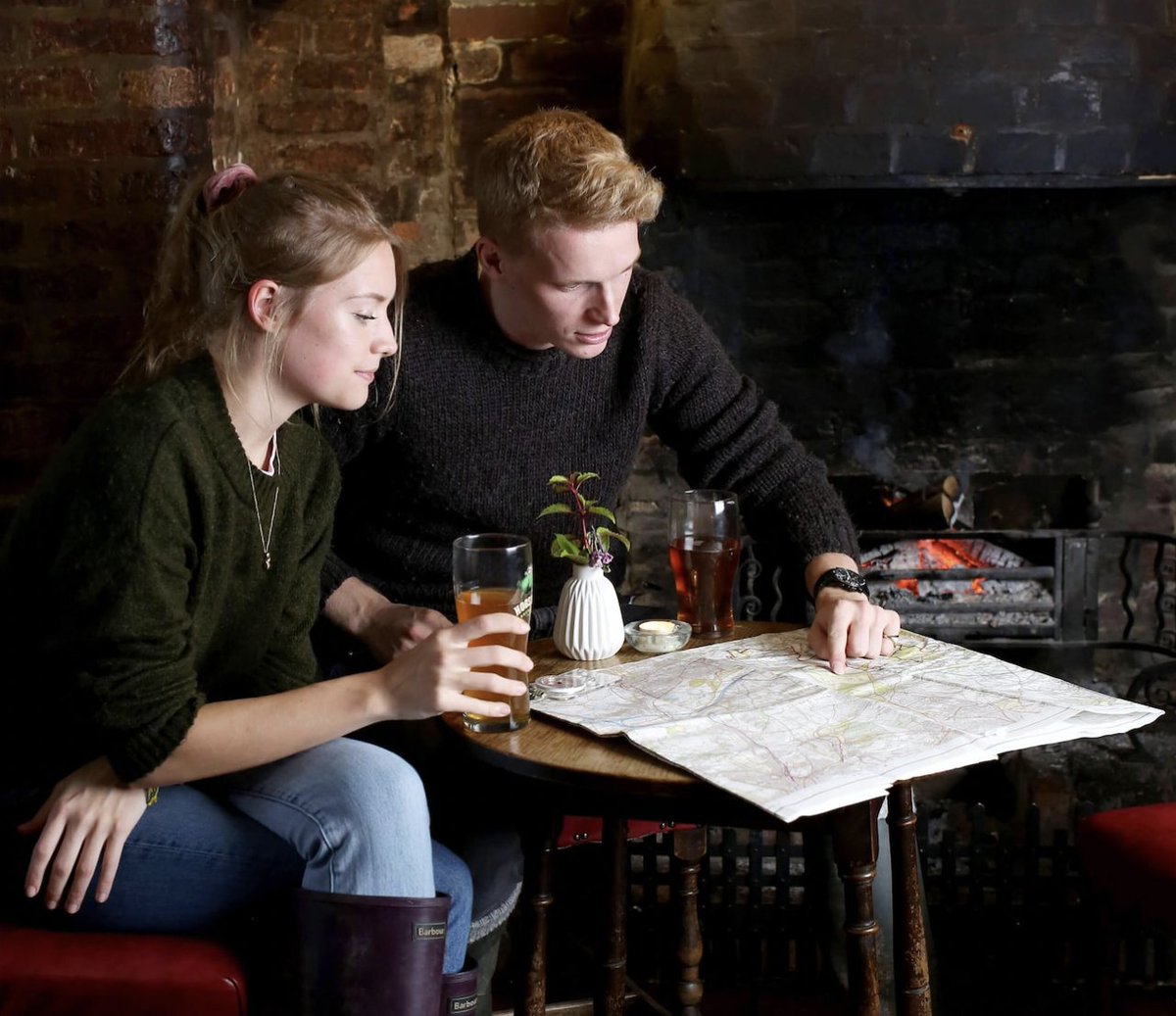
🐙🍽️ Are octopuses too intelligent to eat?
As a £50m 'humane' octopus farm prepares to open, protestors insist the animals' brains make them an unsuitable supper
🧵
telegraph.co.uk/food-and-drink…
As a £50m 'humane' octopus farm prepares to open, protestors insist the animals' brains make them an unsuitable supper
🧵
telegraph.co.uk/food-and-drink…
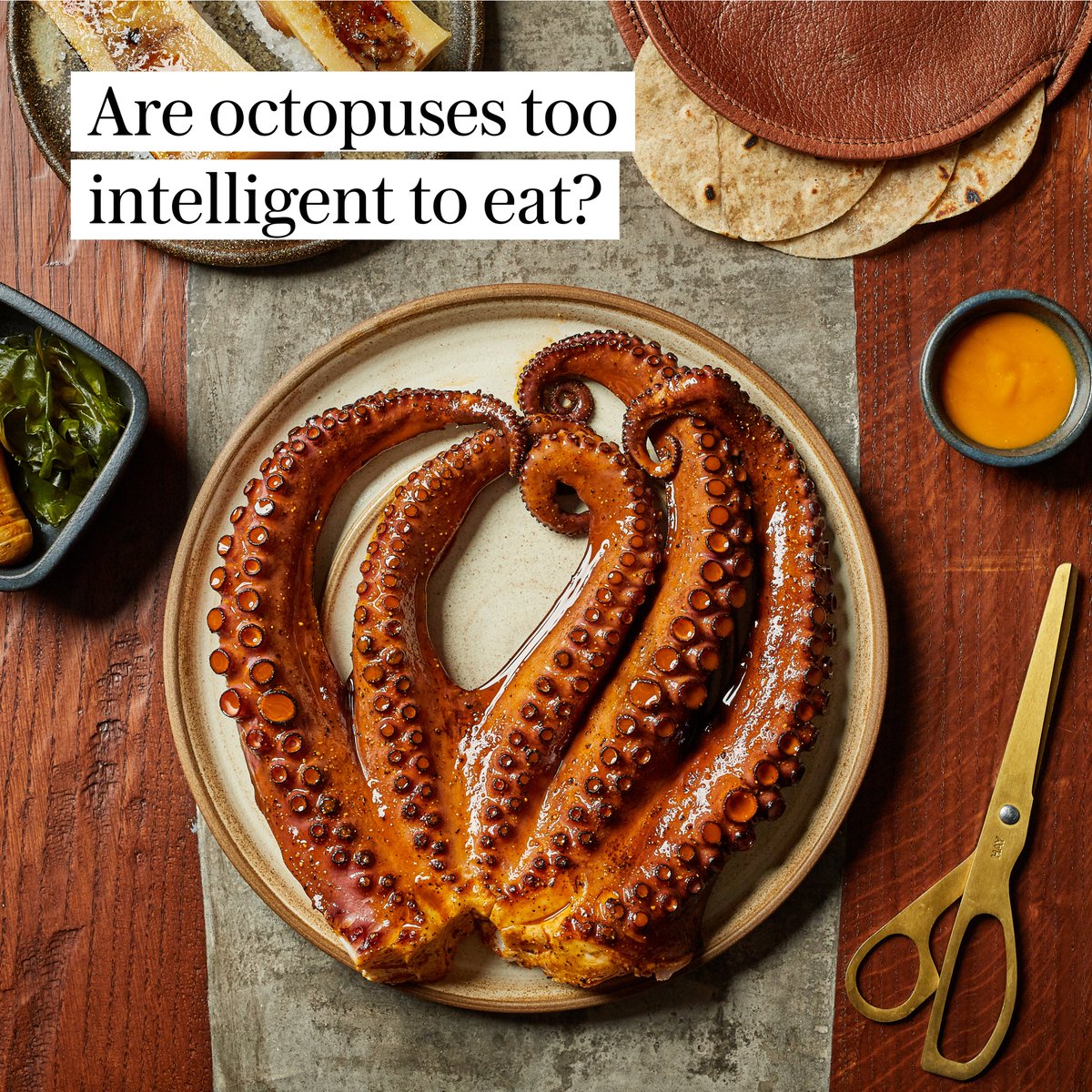
What was once an exotic holiday meal, octopus is now consumed to the tune of 1,300 tons per year in the UK, up 12-fold since 1990.
In the decade to 2019, the global trade doubled to a value of more than £2 billion
In the decade to 2019, the global trade doubled to a value of more than £2 billion
🗣️ And yet just as the gastro-star of the octopus has been rising – boosted by Instagram-friendly plating at fashionable restaurants including Kol in London and El Gato Negro in Manchester – so too has a cohort intent on protecting the animal
This is partly due to an Oscar-winning Netflix documentary, My Octopus Teacher, which became a surprise hit when it was released two years ago.
It helped to recast the creatures in the court of public opinion by showing how intelligent and sensitive they are
It helped to recast the creatures in the court of public opinion by showing how intelligent and sensitive they are
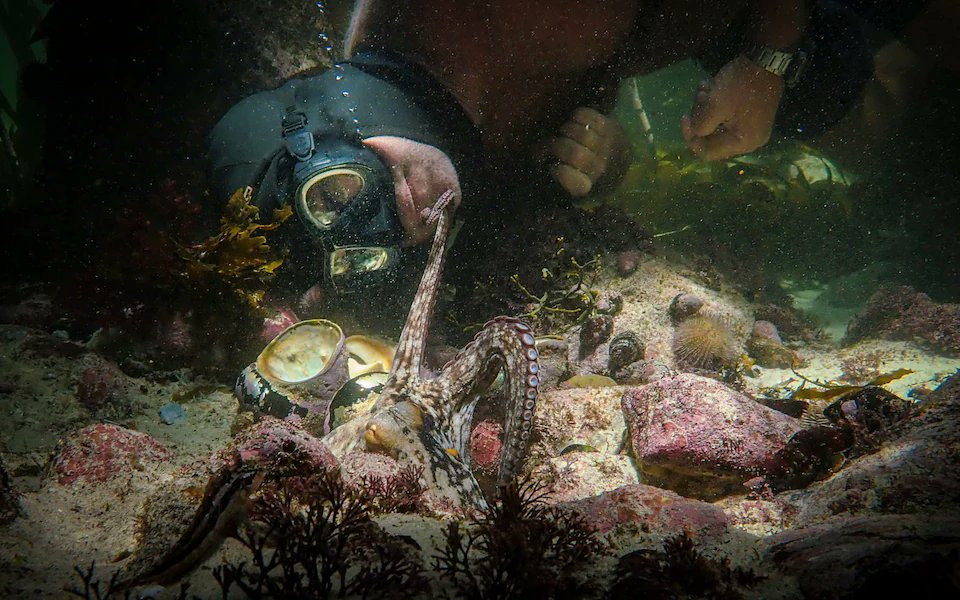
✍️ 'Such has been their Disney-fication that when Spanish seafood company Nueva Pescanova announced plans to open the world’s first octopus farm – to mass-produce octopuses for food – protests followed,' writes @charlottelytton
💰 The plant is due to open in Gran Canaria in 2023, at a cost of more than £50 million, but thousands of people have already signed petitions to stop it, many from the Canary Islands and some from as far afield as the UK and US
The anger has left David Chavarrías, managing director of the company’s Biomarine Center, bemused.
‘Octopuses are no different to other species,’ he says. He points out that Nueva Pescanova has sold fish for more than 60 years
telegraph.co.uk/food-and-drink…
‘Octopuses are no different to other species,’ he says. He points out that Nueva Pescanova has sold fish for more than 60 years
telegraph.co.uk/food-and-drink…

Octopus is significantly harder to farm than other seafood due, in part, to the very specific conditions required for each stage of development.
❌ Competitors based in Japan, the US, Mexico and Australia have thus far failed to successfully open octopus farms
❌ Competitors based in Japan, the US, Mexico and Australia have thus far failed to successfully open octopus farms
Three years ago, Nueva Pescanova finalised its formula to artificially replicate each of its life stages; now, it is producing ‘a symbolic amount’ of Octopus vulgaris before the farm opens in Las Palmas
telegraph.co.uk/food-and-drink…
telegraph.co.uk/food-and-drink…
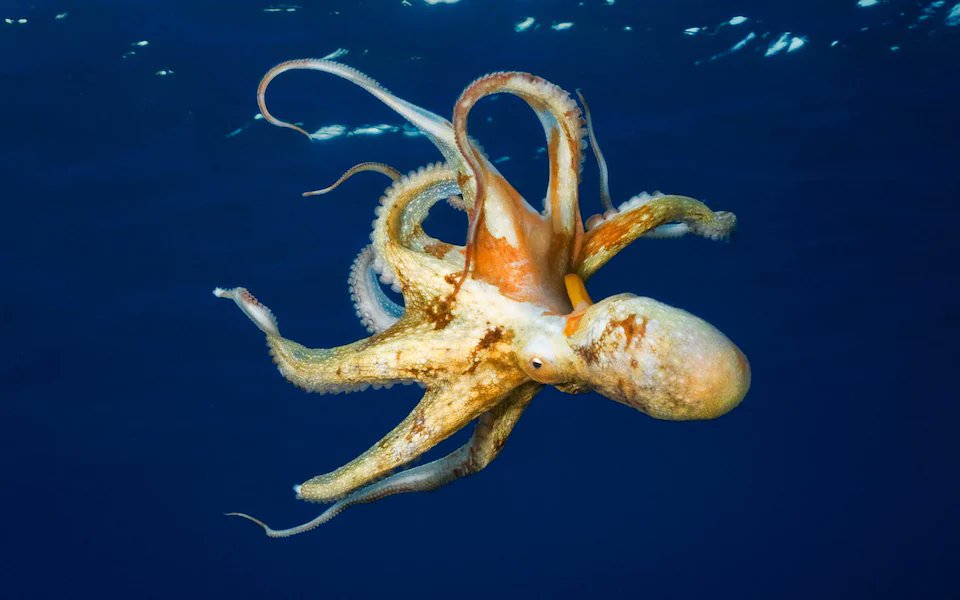
Those against octopus farming are still disturbed by the prospect.
For them, one key question looms: how will the creatures die?
For them, one key question looms: how will the creatures die?
❓ How often do you eat octopus?
So, in the war between octopus defenders and businesses cashing in on a fast-growing market, who will win?
Read more here👇
telegraph.co.uk/food-and-drink…
Read more here👇
telegraph.co.uk/food-and-drink…
• • •
Missing some Tweet in this thread? You can try to
force a refresh



